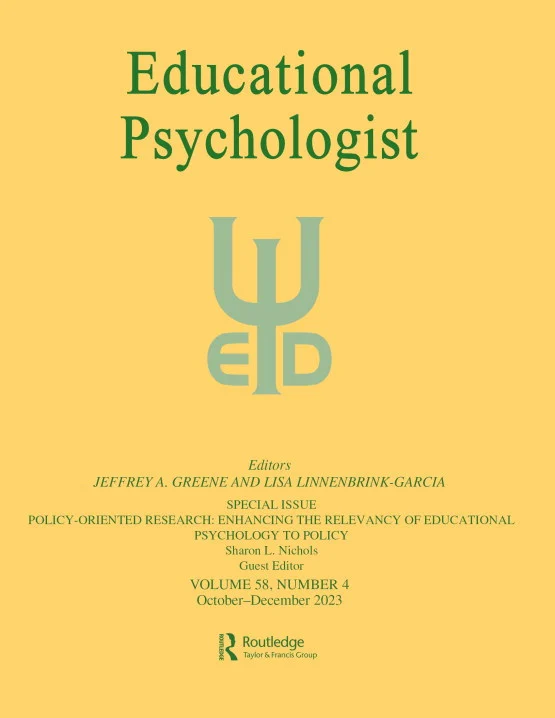Teacher emotions in the classroom and their implications for students
IF 11.4
1区 心理学
Q1 EDUCATION & EDUCATIONAL RESEARCH
引用次数: 79
Abstract
Abstract The present contribution provides a conceptualization of teacher emotions rooted in appraisal theory and draws on several complementary theoretical perspectives to create a conceptual framework for understanding the teacher emotion–student outcome link based on three psychological mechanisms: (1) direct transmission effects between teacher and student emotions, (2) mediated effects via teachers’ instructional and relational teaching behaviors, and (3) recursive effects back from student outcomes on teacher emotions, both directly and indirectly via teachers’ appraisals of student outcomes and their correspondingly adapted teaching behaviors. We then present a tour d’horizon of empirical evidence from this field of research, highlighting valence-congruent links in which positive emotions relate to desirable outcomes and negative emotions to undesirable outcomes, but also valence-incongruent links. Last, we identify two key challenges for teacher emotion impact research and suggest three directions for future research that focus on measurement, research design, and an extended scope considering emotion regulation.教师的课堂情绪及其对学生的影响
本文基于评价理论对教师情绪进行了概念化,并借鉴了几个互补的理论观点,为理解基于三种心理机制的教师情绪与学生结果之间的联系创建了一个概念性框架:(1)师生情绪之间的直接传递效应,(2)教师的教学行为和关系教学行为的中介效应,以及(3)学生成绩对教师情绪的递归效应,直接或间接地通过教师对学生成绩的评价及其相应的适应教学行为产生。然后,我们提出了从这个研究领域的经验证据的视界之旅,强调了价-一致的联系,其中积极情绪与理想的结果有关,消极情绪与不希望的结果有关,但也有价-不一致的联系。最后,我们指出了教师情绪影响研究面临的两个关键挑战,并提出了未来研究的三个方向,即关注测量、研究设计和考虑情绪调节的扩展范围。
本文章由计算机程序翻译,如有差异,请以英文原文为准。
求助全文
约1分钟内获得全文
求助全文
来源期刊

Educational Psychologist
Multiple-
CiteScore
19.10
自引率
3.40%
发文量
16
期刊介绍:
The Educational Psychologist is a scholarly journal dedicated to exploring the psychology of learning and instruction. Articles in this journal encompass a diverse range of perspectives, from examining psychological mechanisms to exploring social and societal phenomena related to learning and instruction. The journal publishes theoretical and conceptual articles, as well as reviews and meta-analyses, that significantly contribute to theory or advance the methods used to explore educational psychology. Emphasizing innovation and advancing understanding, the journal does not publish articles solely reporting the methods and results of empirical studies; instead, all submissions, including reviews and meta-analyses, must offer clear implications for advancing theory. In addition to regular articles, the journal features special issues that delve into important themes in educational psychology, along with focal articles accompanied by peer commentary.
 求助内容:
求助内容: 应助结果提醒方式:
应助结果提醒方式:


